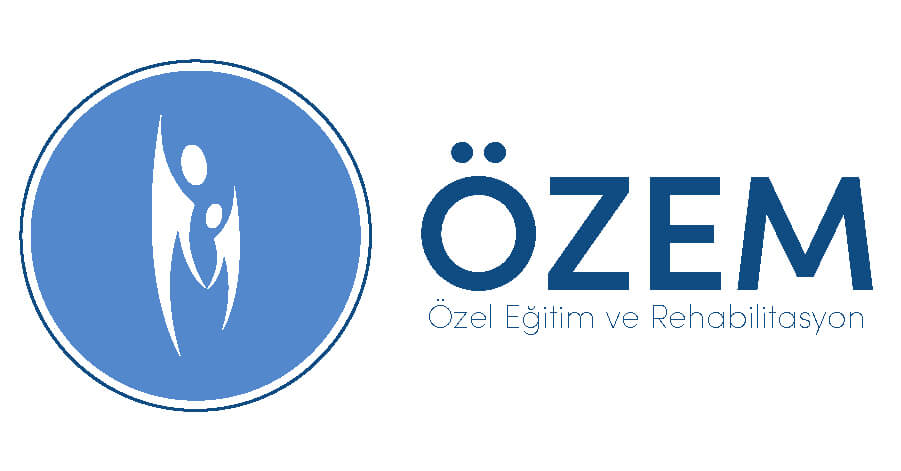
Aba/UDA therapy is the only proven method in autism education.. The thought of it being solid and play-free is far from real., These are the thoughts that do not reflect the truth that individuals who do not understand the therapy can put forward.. Aba therapy is an extremely effective method when designed for the individual.. Aba therapy is a comprehensive autism education program. It's not just about teaching with discrete essays. This program includes areas that will meet all the needs of individuals with autism.. Educators who will apply ABA need to be trained very well and continuous supervision support should be provided to these trainers.. Aba therapy 3-5 with a daily course or 11-12 The month is not a method that can be learned by working in an institution..
We know that there is no institution in our country that can apply aba therapy, except for a few institutions.. But when we do a search on google, we come across hundreds of institutions.. This is a situation that prevents aba therapy from being recognized correctly in our country.. Özem is the only institution in Ankara that can apply Aba Therapy in the original concept.. As Özem, we see in our practices that, When applied for a sufficient time and frequency, aba leads to serious changes in the life of the individual with autism.. This result reduces the stress of families and helps them to have positive expectations by eliminating their hopelessness expectations.. In such an environment, the behavioral problems of the autistic individual decrease., individual's intrinsic motivation, their desire to learn and their caring about their environment increases. Faulty applications lead to the opposite of this situation.. unwittingly done in good faith, The result of malicious interventions to make money is always the same.. MONE's licensing is not a sufficient criterion for special education.. Special education is a specialist job, only experts should do it. We can briefly summarize the aba method as follows:.
Applied Behavior Analysis (ABA) Is It Right For Your Child??
Applied behavior analysis (ABA), social through reinforcement strategies., It is a type of therapy that can improve communication and learning skills..
many experts, ABA for autism spectrum disorder (ASD) sees it as the gold standard treatment for children with. However, it is also sometimes used to treat other conditions, including::
- substance use disorder
- dementia
- brain damage post cognitive impairment
- eating disorders
- panic disorder , obsessive compulsive disorder (UN) ve phobia anxiety and related conditions such as
- anger issues
- borderline personality disorder
This article, firstly, how it works, will focus on the use of ABA for children with ASD, including what to know about how much it costs and the controversy surrounding it.
ABA, consists of several stages that allow for an approach tailored to your child's specific needs.
Consultation and evaluation
Firstly, You will want to consult a therapist trained in ABA. Functional behavior assessment to this consultation (FBA) called. Therapist, will ask questions about your child's strengths and abilities, as well as what challenges them.
Behaviours, they will spend time interacting with your child to make observations about their communication level and skills. They may also visit your home and school to observe your child's behavior during typical daily activities..
Effective ASD treatment looks different for every child. To this end, ABA therapists should talk about specific interventions that fit your child's needs. They may also want to integrate certain strategies into your home life..
develop a plan
Your child's therapist, will use their observations from the initial consultation to create a formal plan for therapy. this plan, should be tailored to your child's unique needs and include concrete treatment goals.
These goals often relate to reducing problematic or harmful behaviors such as tantrums or self-harming, and increasing or improving communication and other skills..
The plan also, will include specific strategies that teachers and therapist can use to achieve treatment goals. This, helps everyone who works with your child stay on the same page.
SPECIAL INTERVENTIONSThe specific type of ABA used, your child's age, may be due to difficulties experienced and other factors.
- Early intensive behavioral intervention (THERE). This is usually 5 Recommended for children under the age of. Communication, intensive designed to teach social interaction and functional and adaptive skills, includes an individualized curriculum.
- Discrete trial training. This training, aims to teach skills through structured task completion and rewards.
- Important response training. Although the therapist usually offers several options based on specific skills,, this training allows your child to take the lead in a learning activity.
- Early Start Denver Model (ESDM) . This, includes game-based activities that combine several goals at once.
- Verbal behavior interventions. These, can help children be more verbal or increase their communication skills.
Caregiver education
ABA, also relies on parents and caregivers to help reinforce desired behaviors outside of therapy.
Your child's therapist, to you and your child's teachers, will provide information on strategies to help reinforce their work in therapy.
Moreover, You will also learn how to safely avoid less effective types of reinforcement, such as giving in to tantrums..
Frequent evaluation
ABA therapists, tries to uncover the causes of certain behaviors to help your child change or improve them. During therapy, your child's therapist, can tailor his approach depending on how your child responds to certain interventions.
As long as your child continues treatment, The therapist will continue to monitor his progress and analyze what strategies are working and where your child might benefit from different treatment tactics..
what is the ultimate goal?
The goal of treatment largely depends on your child's individual needs..
With this, ABA often results in children:
- show more interest in the people around them
- communicate more effectively with other people
- what they want (for example a particular toy or food), learn to ask clearly and specifically
- focus more on school
- reduce or stop self-harming behaviors
- having fewer tantrums or other outbursts
What is the price?
The cost of ABA, your child's therapy needs, may vary depending on the type of ABA program you choose and who is providing the therapy. ABA programs that provide more services may cost more.
Generally, from a board-certified ABA therapist 1 hourly ABA therapy, Although fees may vary, approx. 120 $ amount of. Although therapists who are not board-certified may provide treatment at lower rates, It is recommended to work with a certified ABA therapist or a team supervised by a certified therapist..
Some experts 40 recommends ABA therapy up to hours. But in reality, therapists are usually weekly with clients 10 ila 20 the clock runs. This range may vary according to your child's needs..
at your child's time 120$ average per week 10 assuming he needs ABA, treatment costs $1,200 per week. Many children show improvement after a few months, but every child is different and ABA therapy 3 can take up to a year.
Can it be done at home?
Therapy can also be done at home. Actually, some children do best with indoor ABA because they feel more comfortable in their normal environment. It can also make it easier for them to master certain life skills, such as getting dressed and using the toilet..
However, at least initially, it's best to try ABA at home only with the help of a licensed therapist. They can help you create a program tailored to your child's needs..
In addition, in a recent sourceResearchA reliable source suggests that ABA therapy available online through the center could be a cost-effective alternative to traditional ABA. All you need is a computer and internet connection.
RECOMMENDED READINGLooking for more information on ABA before trying it?? This books, great starter books for parents that you can order online:
how do i find a therapist?
If you are ready to find a therapist, your child's pediatrician is a good starting point. They can give you a piece of advice or recommend someone.
You can also search online for local providers. Board-certified behavioral analysts (BCBA’lar) that you can work directly with some children, but remember that in most cases they supervise other ABA trained professionals or associate professionals.
Some professionals without ABA certification may still have ABA training and provide therapy that works well for your child.. If you want your child to go to an ABA center, it's a good idea to make sure you're getting at least one BCBA surveillance treatment.
It is enough to ask BBA Academy in our country..
QUESTIONS TO ASKKeep the following questions in mind when talking to potential therapists:
- How many hours of therapy do you think my child needs each week??
- Do you offer any special funds or scholarships? (for schools and centers)?
- What methods do you use to deter unwanted behavior??
- How to handle self-harming behaviors?
- How many people will work closely with my child? What training do they have?
- Can you teach me how to use ABA techniques at home?
- Can I watch therapy sessions?
- Are there other approaches, such as skills training groups, that can help my child??
Healthline FindCare tool , can also provide options in your area if you need help finding a therapist.
What about the controversies surrounding the ABA?
ABA has been the subject of controversy in recent years. Many autistic individuals and their advocates strongly oppose and oppose this treatment.
Some reviews includes the following:
- ABA, takes away the child's right to say "no".
- Children under this treatment are bullied and humiliated.
- ABA therapists are very strict and do not take into account the individuality of the child.
Most of these objections, originates from the early history of this technique.
In previous years, usually every week 40 included treatment up to the hour. most of this time, spent completing tasks while sitting at a desk or table. Punishment has often been used to correct undesirable behavior.. And there was often an emphasis on making children more "normal". ” Neurotypical ” term, typical developmental, describes a person with cognitive or intellectual abilities.
people today, increasingly recognizes the value of neurodiversity, which refers to the fact that the human brain can function in a variety of ways. Against this, ASD treatment, Moving away from trying to "fix" people with ASD.
treatment instead, focuses on changing behaviors that cause difficulty and, allows them to develop the skills and strengths necessary for an independent life. Undesirable behaviors are often ignored by therapists today rather than punished..
Although ABA is thought to be an excellent therapy to help many of the symptoms found in children diagnosed with ASD (to warn, such as head banging or self-harming behaviors), this treatment may not be right. best choice for all kids.
My Aba Therapy Center

